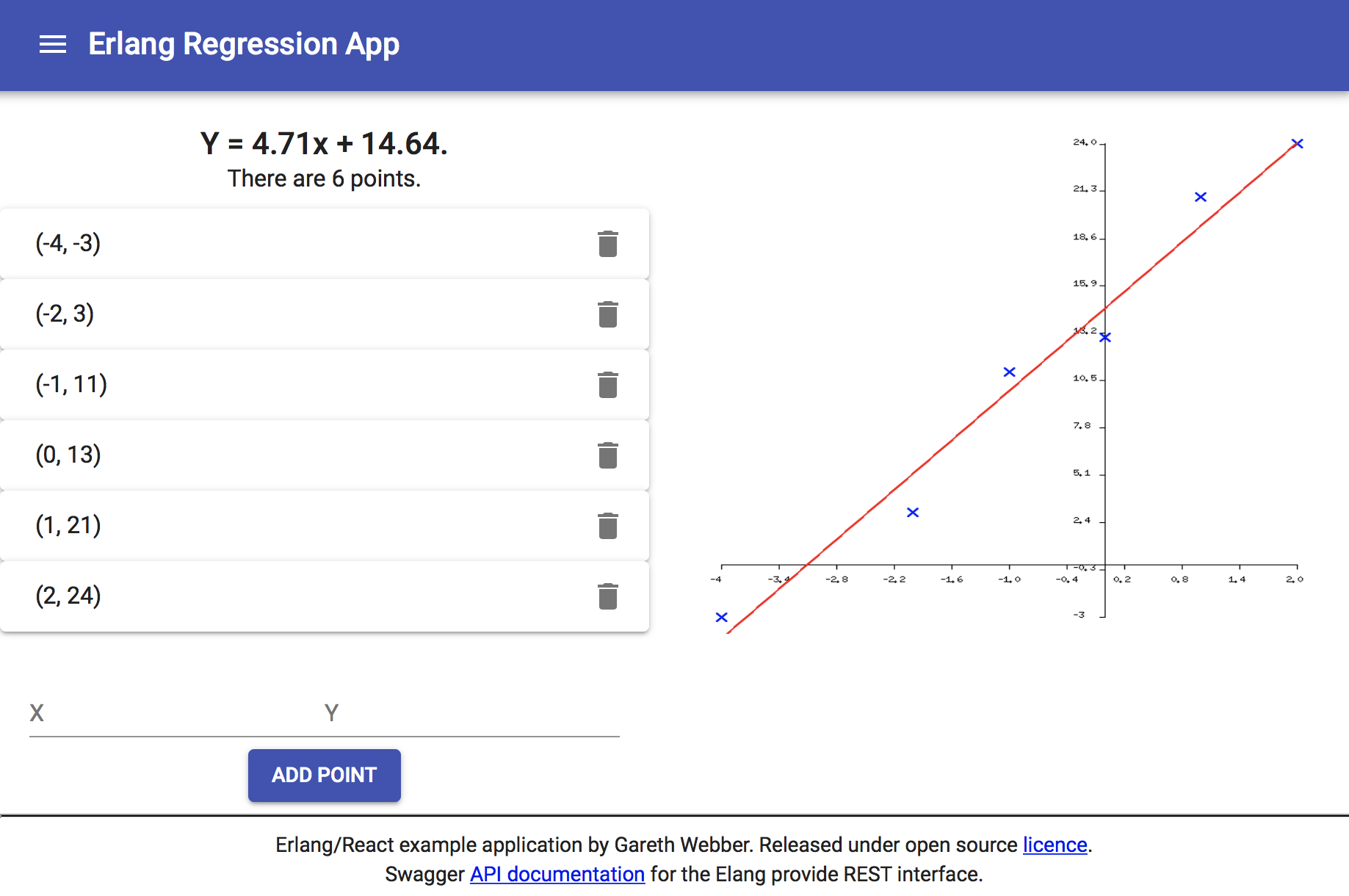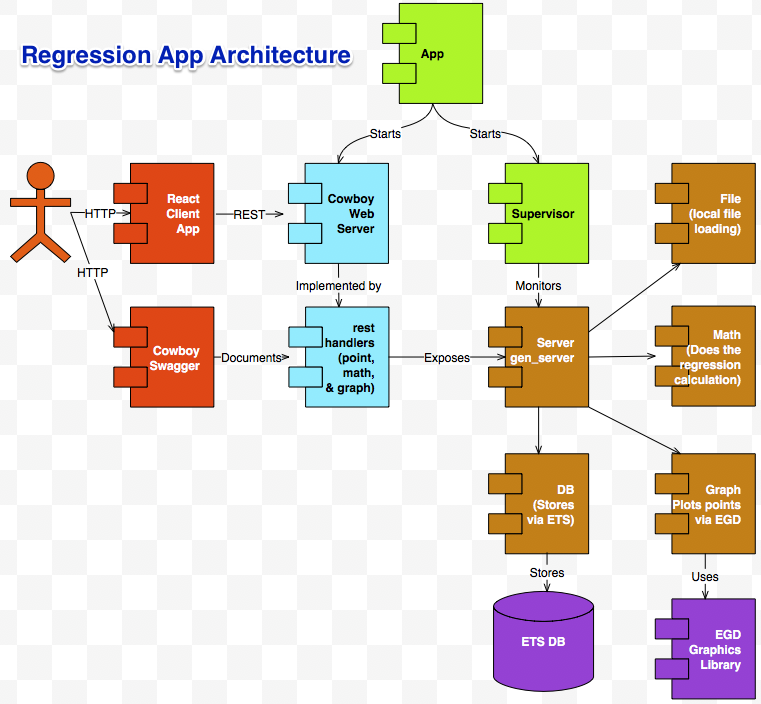This is a test of my ability to learn Erlang. It is a simple web-app that you can give a series of points and get a linear regression performed. It is built with a react app talking to an Erlang provided REST interface. The application is built with rebar3 which will grab all the dependencies and compile everything.
There are a three ways to play with the app: through the react front end, through swagger, or via the erlang shell (talking to the OTP gen_server business logic implementation).
Start the application on the command line using rebar3 shell. You can then
spin up a web-browser and point it at http://localhost:8080. Alternatively,
the project can be pushed into https://www.heroku.com and will spin up
without any further work (as a single web dyno).
Start the application on the command line using rebar3 shell. You can then spin up a web-browser and point it at http://localhost:8080/api-docs.
To run, execute rebar3 shell which will start erlang and load the regression_app. To see something enter:
regression_server:load_file("points.dat").
regression_server:run_regression().
regression_server:load_point({point, -2, 2}).
regression_server:run_regression().
regression_server:debug().The architecture is best described in three parts: a react client-side application, a set of rest endpoints served using cowboy and an OTP gen_server based erlang application. The component diagram below details the assembly.
The react app is built under /client. The deployable version lives under /priv/static. The Erlang code all lives under /src.

